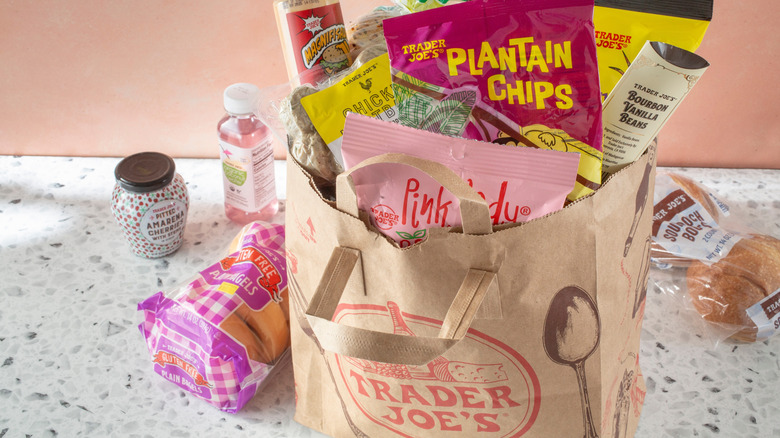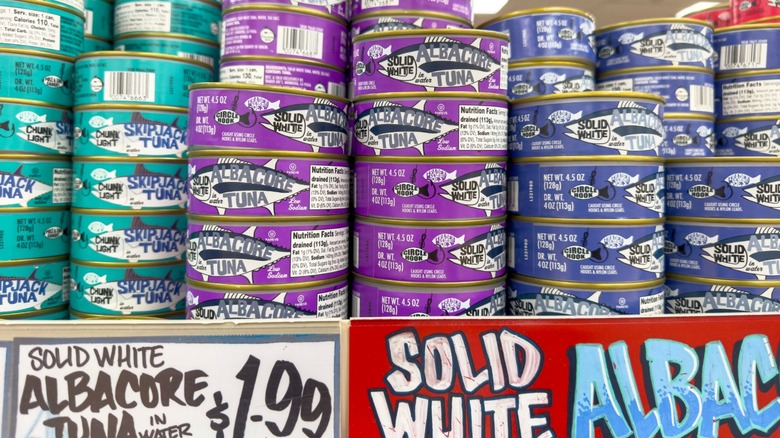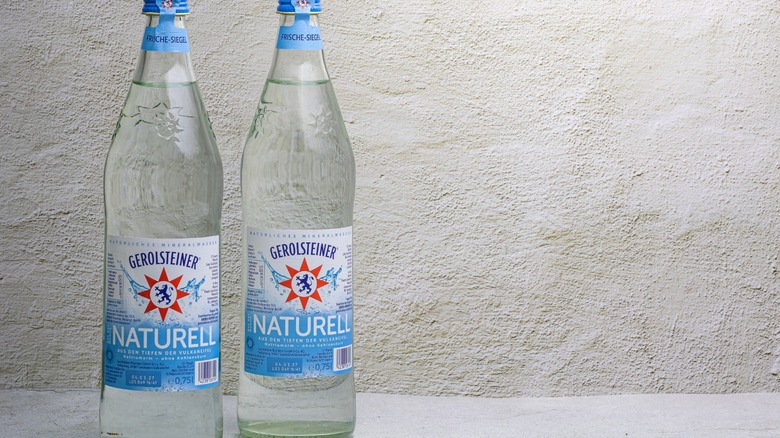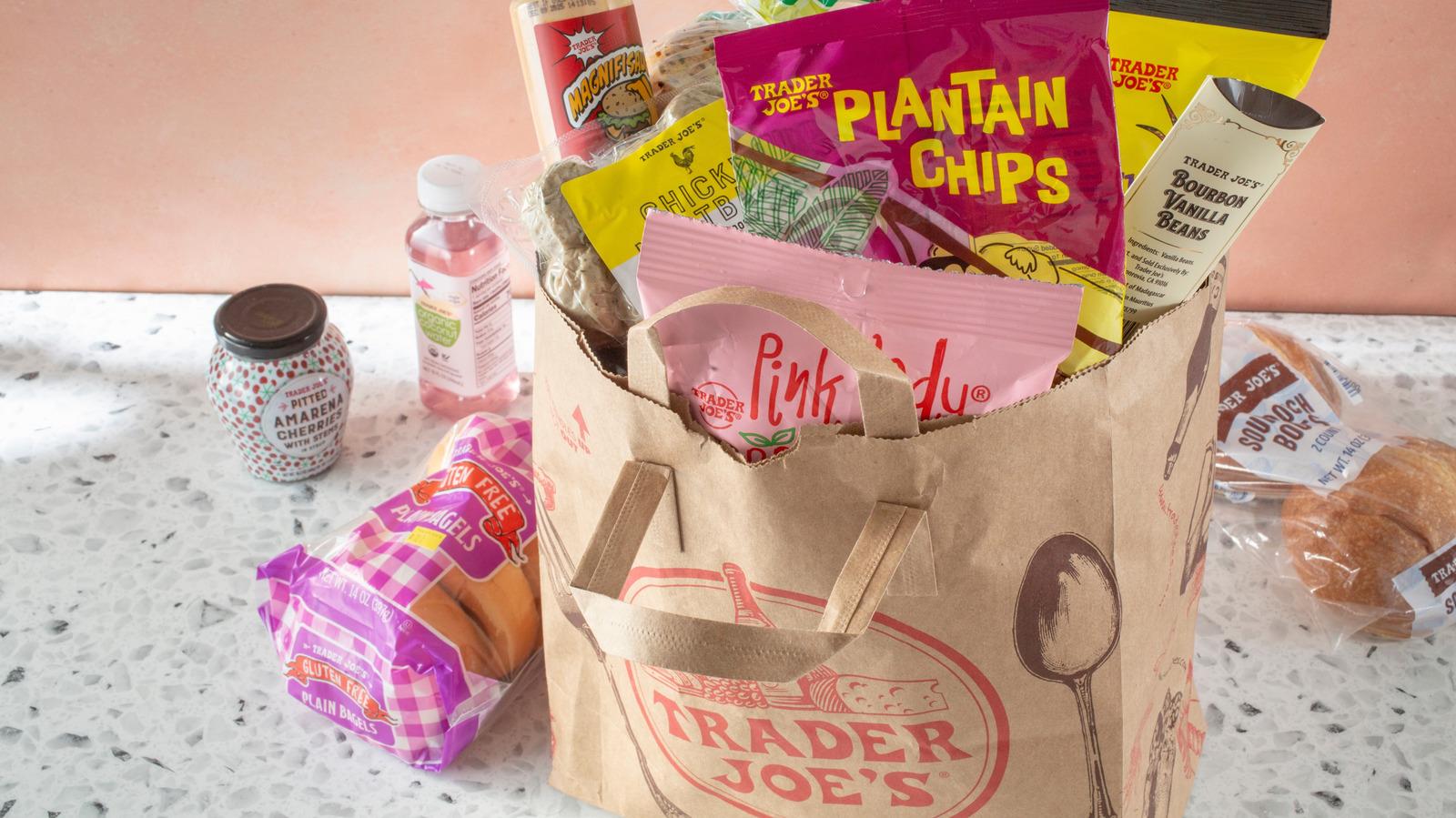
The Image Party/Shutterstock
From the overly complimentary staff to the often-hectic shopping environment, Trader Joe's is quite distinct from other grocery stores. Many of the chain's products have even developed cult-like followings, with the easy Mandarin Orange Chicken and sweet treats like the Dark Chocolate Peanut Butter Cups continuously held in high regard by fans. While the love for Trader Joe's is undeniable, the store has experienced its share of challenges in the past. Like many grocery chains, Trader Joe's features private label items, which are goods manufactured by third parties exclusively for retailers. While these products are developed with quality and safety in mind, the store has experienced several recalls involving its beloved items.
Trader Joe's initiated a few recalls and product advisories in 2025, and we put together a list of the biggest recalls to hit the store this year. Problems ranged from packaging defects to undeclared allergens on ingredient labels, and these issues affected canned tuna, sparkling water, and dressing sold at the store. Keep in mind that product recalls are common among most retailers these days due to the sheer volume of items manufactured. And thankfully, none of T.J.'s recalls featured here were reported to have caused customer illness or injury.
Assorted canned tuna products (Tri-Union Seafoods)

The Image Party/Shutterstock
In February 2025, Tri-Union Seafoods enacted a voluntary recall of its canned tuna due to a defective pull-tab lid. The primary concern was that the product defect would eventually affect the seal, which could then result in air exposure and bacterial growth. Broken lids are just one of the many signs that your canned food has gone bad, along with foul odors, discoloration, and swollen packaging. Trader Joe's was one of a few retailers who received the defective canned tuna produced by Tri-Union Seafoods, along with brands like Genova and Van Camp's, as well as H-E-B (a regional grocery chain with locations throughout Texas).
According to the FDA, the defective canned goods were distributed to Trader Joe's stores in numerous states, including Wisconsin, Delaware, Virginia, Illinois, Pennsylvania, Indiana, Ohio, Iowa, North Carolina, Kansas, New York, Kentucky, New Jersey, Maryland, Nebraska, Michigan, Missouri, and Minnesota, plus Washington D.C. As explained by the FDA in its consumer alert, lid defects could elevate the risk of botulism among the canned tuna brands impacted. As a nervous system toxin, botulism is associated with symptoms like stomach pain, dizziness, blurred vision, and vomiting. In serious cases, these infections can cause paralysis and potentially loss of life. However, no illnesses were reported in relation to this recall.
Gerolsteiner Sparkling Water

Jokue-photography/Shutterstock
While bacteria and other germs are common causes of product recalls, dangerous packaging can also put retailers (and consumers) on high alert. That was the case in March of 2025, when a brand of sparkling water sold at Trader Joe's was recalled due to an injury risk. It was determined that Gerolsteiner Sparkling Water bottles were prone to breakage, which could potentially injure people drinking from the bottle. Despite the defect, no injuries were reported in conjunction with the defective bottles.
Overall, the recall affected 61,500 bottles of sparkling water. These products were sold in several states, such as Texas, Alabama, Tennessee, Arkansas, South Carolina, Colorado, Oklahoma, Florida, New Mexico, Georgia, Louisiana, and Kansas. Consumers were instructed to cease drinking from the bottles and return them to the point of purchase to inquire about a refund. Trader Joe's discovered the defect during a research process involving its bottles, though the exact methods weren't disclosed by the company. However, the store estimated that approximately 1% of bottles within two separate lot codes were impacted by the defect.
Hot Honey Mustard Dressing
The FDA requires that certain allergens be listed on food labels to ensure consumers with allergies and intolerances can protect themselves. As a result, the following ingredients must be featured on all product labels: milk, eggs, fish, crustacean shellfish, tree nuts, peanuts, wheat, soybeans, and sesame (which was added to the allergen list in 2021 by the Biden administration). Failure to include allergens present in products on labels can land companies in hot water, as Trader Joe's experienced in March 2025. The store's brand of Hot Honey Mustard Dressing (manufactured by Fresh Creative Foods) was subject to a voluntary recall due to a potentially harmful labeling mistake.
This zesty dressing did not include label disclosures for wheat, peanut, sesame, and soy. Affected products were distributed to Virginia, Arkansas, Texas, Colorado, South Carolina, Delaware, Pennsylvania, Florida, Oklahoma, Georgia, Ohio, Kansas, New Mexico, Louisiana, North Carolina, Massachusetts, and Maryland, as well as Washington D.C. Food allergies are known for causing a range of health effects, including hives, tingling mouth, nasal congestion, and facial swelling. More serious effects can also occur, including anaphylaxis, which can restrict the airways and requires immediate medical attention. No illness or injuries were reported with this recall, and customers were encouraged to return the product for a full refund.



